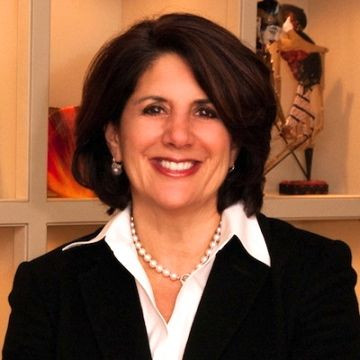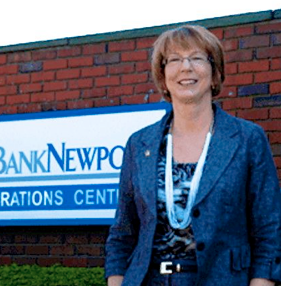Personal Tech for Women: 5 Things to Know About Being More Screen-Free
Monday, June 22, 2015
With work, social media, and smartphones, we spend entirely too much time tethered to screens and gadgets. Some statistics out there say the average person spends 7.5 hours a day on a computer. Being in front of a screen will not only strain your back and your eyes, but it could lead to psychological issues, like Internet addiction and anxiety. It’s highly unlikely that any doctor, therapist or psychologist will tell you to spend more time clicking around applications and websites. So try stepping away from the screen, even for small increments of time. It might be easier said than done, but once you establish a few rules for yourself, spending less time in front of a computer could improve your physical body and your mental state. You might realize how much extra time you have to live in the real world. Remember that place, the one where you walked on two legs and talked to people face-to-face? Here are 5 things that will help you get there.
1. Screen-Free Week
You may have missed the official international “Screen-Free Week” that happens annually in May. It’s an occasion when families, schools, and communities turn off digital entertainment and get back to the joys of the reality that happens outside the edges of the screen. For one whole week, TV, video games, apps and the web are replaced by books, board games, crafts and outdoor activities. But come on, who says we need to do this only in May? Try having a screen-free week any time it suits you or your family. Challenge yourself and make it longer, or try ditching not only screen-centric entertainment, but also laptops and smartphones too… of course, only if work allows it. Think about planning a screen-free week around a holiday – because if you’re already taking time off of work, then take time off from your devices too.
GET THE LATEST BREAKING NEWS HERE -- SIGN UP FOR GOLOCAL FREE DAILY EBLAST2. Look Up
It might sound contradictory to mention an app when trying to help one spend less time on screens, but this little bugger is promising to help you do just that. The Mac app Look Up is aiming to help you feel less robotic by reminding you to look away from your screen. It uses the 20-20-20 rule: every 20 minutes, for 20 seconds, look up from your screen and focus your gaze about 20 feet away. This mini-break is supposed to help with eyestrain, which can make even the freshest of faces look exhausted. On the 20-minute mark, a notification appears in your screen – you have the option of taking the break or dismissing it. Look Up also allows you to set small goals to accomplish by your next break. Simply type in a goal, and if you’ve completed it by the next 20 minutes, you can click the “I did it” button and set a new task. If might feel a bit like racing yourself, but if you’ve got a case of “the wandering mind” this might help you stay on track.
3. Decreasing smart phone time
Smartphones are addictive, says new research from the University of Derby, in the UK. The study shows how overusing a smartphone can impact one’s psychological well-being. And according to its numbers, the average user spent 3.6 hours per day on his or her smartphone, with 13% of participants classified as being addicted. Higher scores of narcissism were also linked to smartphone addiction. So to combat this, try the following: turn off your notifications, time your own smartphone use with an app (the results might scare you into using it less), don’t use your phone as an alarm clock, and give yourself daily breaks by putting your phone on Airplane Mode or out of reach – and hopefully out of mind.
4. Rescue Time
Okay, another app. But this one is not used for a short-term fix, like a quickie screen break. Rescue Time allows for a long-term break by showing you exactly how you use your time. As a desktop or smartphone app, it tracks the time you spend on applications and websites and gives you an accurate picture of your day; for instance, how much time was spent on email, on Skype calls, or taking sneaky Facebook breaks. This app is geared towards those who are computer-bound for work – and given the statistic at the top of this article – that’s a fair amount of us. It’s particularly great for freelancers too, whose “work hours” might be slightly blurry. By having that data, you’ll know exactly how, and where, you’re wasting your time. So streamline your workflow (like logging out of your personal email) and spend more time away from the screen.
5. Just turn it off
You can try an app like Self Control that lets you blacklist time-wasting websites, or a plug-in like LeechBlock which blocks sites during designated times of the day. Or just harness the willpower and turn off your computer when you’re not using it. If you’re busy going offline tasks, then power down the online device. It’ll stop you from getting distracting and rushing back to the screen because you need to know what day Christmas falls on – because you need to know now! No, you don’t. Take daily breaks from your screen too. When you grab a bite to eat, or when you need to do a squat or a yoga stretch for five minutes, turn it off. Take a walk during your break and leave your phone at home. And when you’re out for the night, turn off your phone when it’s in your purse or pocket. All the info, updates and notifications you need will still be there, later.
Melanie Sevcenko is a journalist for radio, print and online. She reports internationally for BBC World Service and Monocle Radio (M24) in the UK, and for Deutsche Welle in Germany. Melanie also reports for the online news source GoLocalPDX, in Portland, Oregon. Her work has been broadcast by CBC in Canada and the Northwest News Network, and published by Al Jazeera English, Global Post, Pacific Standard, the Toronto Star and USA Today, amongst others.
Related Slideshow: Women Leading in Rhode Island
Who are some of Rhode Island's high-level female bosses? GoLocal takes a look at some of the leading women in the state in their respective industries, in the private and nonprofit sector.
Related Articles
- Personal Tech for Women: Tech Designed Without Women in Mind
- Personal Tech for Women: 5 Things To Know About the “Smart Kitchen”
- Personal Tech for Women: 5 Things You Need To Know About Apps For On-Demand Services
- Personal Tech for Women: 5 Things You Need To Know About Fitness Trackers
- Women’s Personal Tech: 5 Things You Need To Know About Wearables
- Personal Tech For Women: 5 Things You Need to Know About “The Internet of Things”
- Personal Tech for Women: 5 Things You Need To Know About Siren, a New Dating App for Women
- Personal Tech For Women: 5 Things To Know About Photo Editing With BeFunky
- Personal Tech For Women: 5 Things To Know About The Smart Garden
- Personal Tech For Women: 5 Things to Know About New, Smarter Food Label
- Personal Tech for Women: 5 Things to Know About Purging Your Closet
- Personal Tech For Women: 5 Things To Know About Tracking Your Stuff
- Personal Tech for Women: 5 Things You Need to Know About Fun Gadgets for Spring
- Personal Tech for Women: 5 Things to Know About What Women Want in a Gadget
























